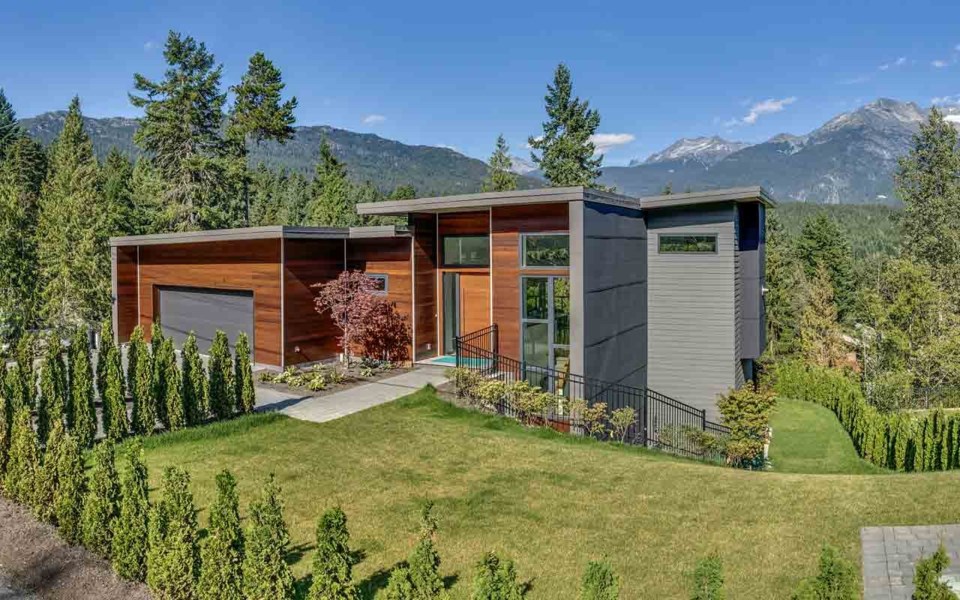Whistler is taking steps to adopt a new, greener building code. Known as the BC Energy Step Code, it provides an incremental and consistent set of regulations that will lead to more energy efficient buildings.
"(The regulations) are very progressive, and it is consistent with what the municipality of Whistler is trying to achieve as far as energy efficiency and climate change action (goes)," explained Whistler Mayor Nancy Wilhelm-Morden.
To facilitate the potential transition, the municipality has set aside $15,000 in its proposed municipal budget. The money will be used to engage stakeholders, offer training, and upgrade internal systems.
Wilhem-Morden said it is important to develop consensus from a range of stakeholders, before adopting the rules. At this point, municipalities can choose to adopt the new rules on a voluntary basis.
"We want to ensure we've got alignment with everyone and that people are supportive of the changes, rather than (the stakeholders) thinking they are being foisted on them," she explained.
The goal is for council to consider integration of the new rules this summer. "If it does pass council then it would be potentially impacting new residential construction beginning in late 2018 or 2019," said Wilhelm-Morden
The Step Code stemmed from the province's Climate Leadership Plan, a 2015 proposal that outlined actions designed to help the province meet a 2050 emissions reduction target of 80 per cent below 2007 levels.
One of the plans' calls to action was to rejig the B.C. building code to make all buildings net zero by 2032.
For Bob Deeks, president of RDC Fine Homes, the Step Code represents an important step in the right direction.
"If society wants to move to more carbon-neutral construction, there have to be goals set forward both federally and provincially," said Deeks, who served as vice chair of the BC Energy Step Code council.
"If people want to do this in accordance with goals set forward by the Paris Accord, they have to get moving now... You can't wait until 2032 and move the industry from 0 to 100."
The code will bring clarity and clear benchmarks for the building industry and help address the problems associated with different municipalities having their own specific rules when it comes to energy efficiency, explained Deeks.
Fifteen municipalities have already committed to bringing the code into force, with those on Vancouver's north shore committing to level three of the multi-level code, said Deeks.
"All of the municipalities on the North Shore are considering going straight to step three," said Deeks, who would like to see the RMOW do the same thing.
The regulations are tailor made for the province's various climate zones, and operate on a performance, rather than a prescriptive basis — an important distinction that Deeks feels will make a big difference in bringing about the efficient homes they aim to facilitate.
In the past, the building code told you about how much insulation you needed and the thermal performance required for windows, but there wasn't any testing to insure that efficiency standards were actually met.
"There was no way for the inspectors to verify that the air-tightness requirements were being met or that the house resulted in the outcome expected by the prescriptive path," said Deeks.
Builders in municipalities who adopt the new rules will be required to work with an energy advisor and have their homes tested for energy efficiency upon completion.
"When you apply for a permit, you'll have to demonstrate that your home is equal than, or better than, a reference house," explained Deeks. "To get your occupancy permit, you need to demonstrate through testing that the house met the standard set from the model — and one of the key metrics around that is an air test.
"If you seriously fail it, than the cost to fix it is going to be prohibitive — and that's going to be a problem for the builder."
For Dave Girard, president of Peak Ventures, the new regulations are smart and should be embraced.
"It makes the entire industry bring up their quality of construction to an energy efficient level, and I think it's long overdue."




